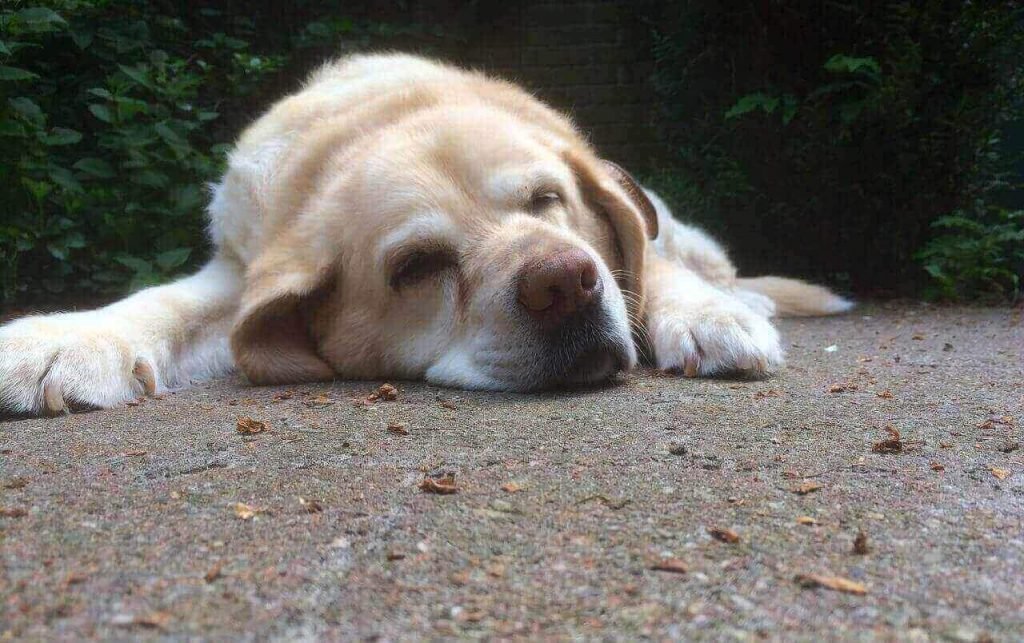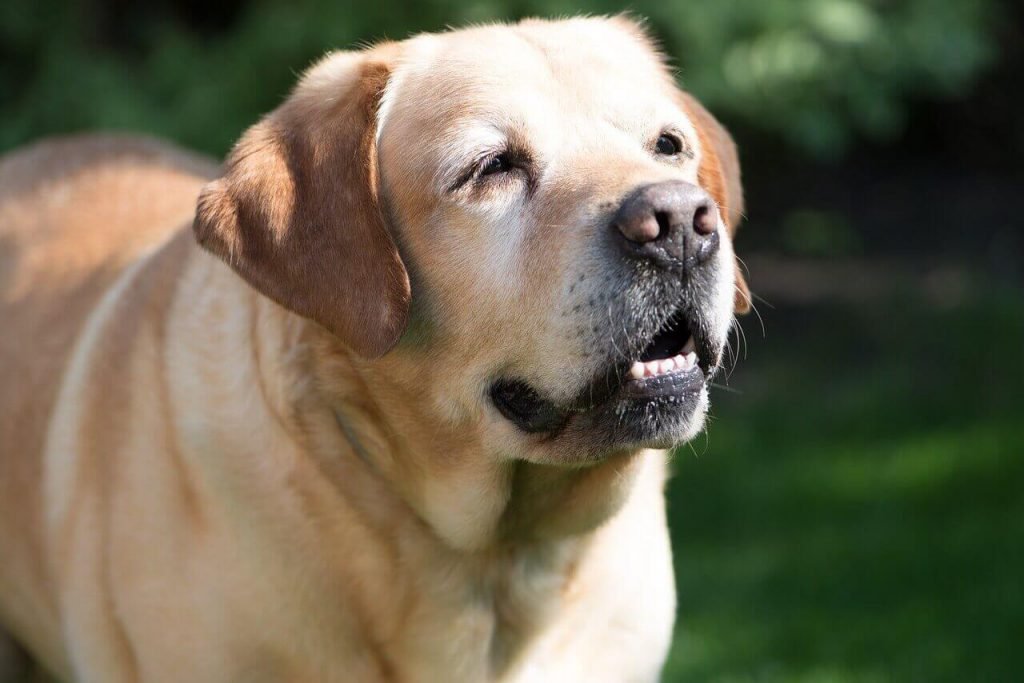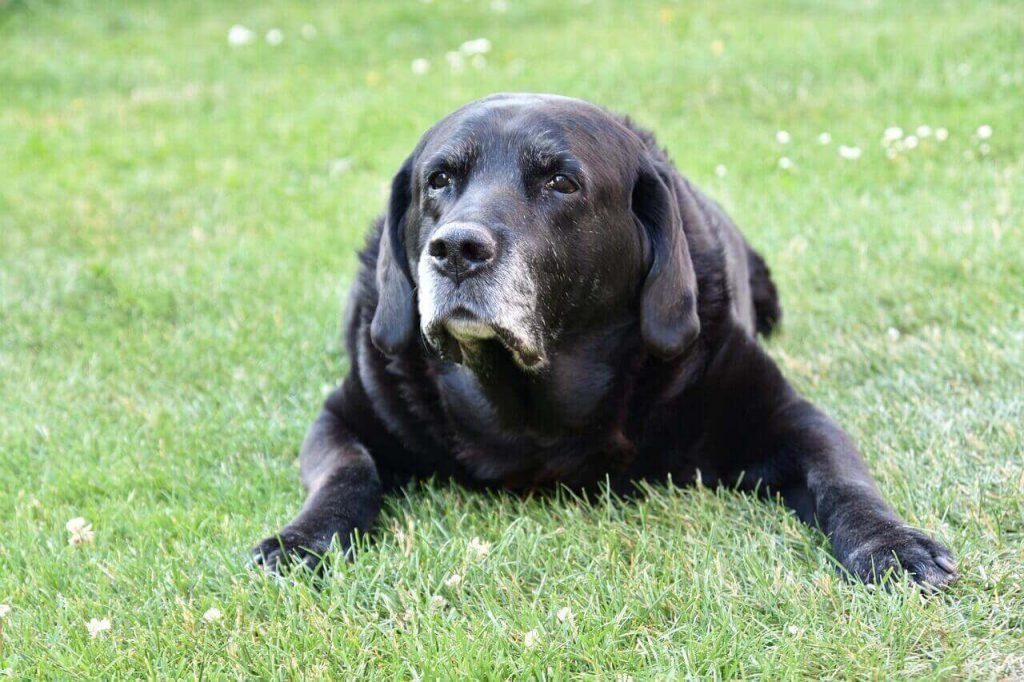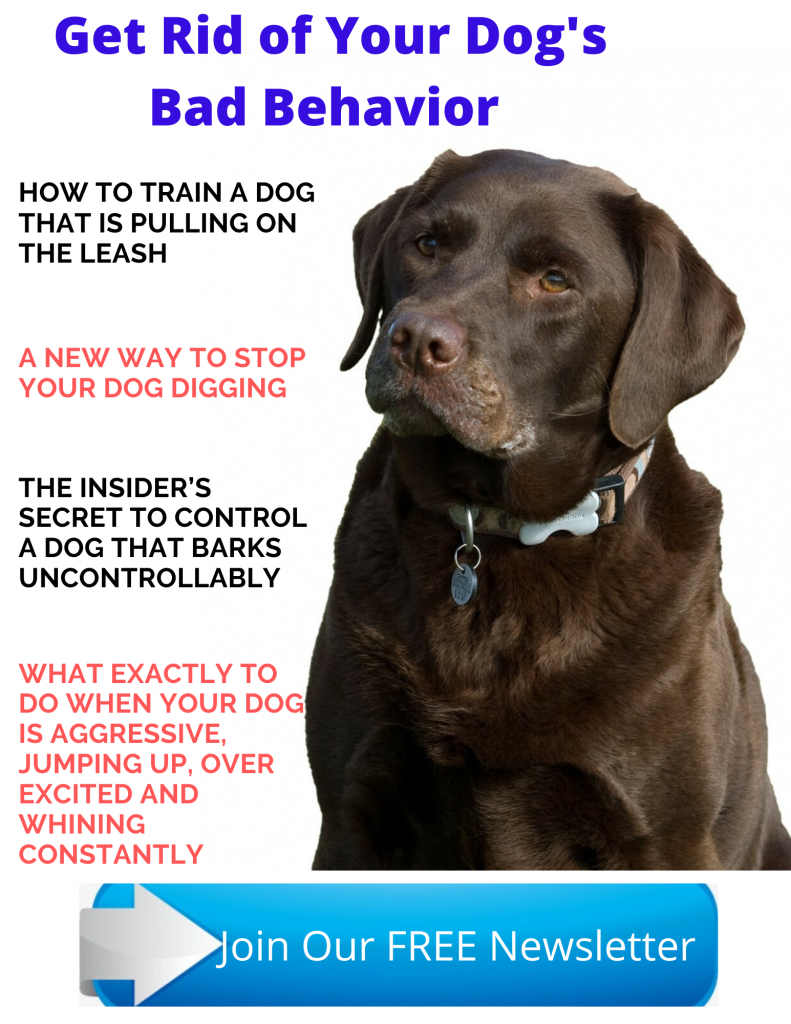It can be quite painful to see your labrador growing old and getting affected with various health issues. These various health issues can affect your Labrador lifespan. But somethings cannot be changed like our labs have a short lifespan when compared with humans. So all we can do is to take proper care of its health and wellbeing in every stage of its life especially its older stages.
In this article, i want to discuss regarding various health problems that can affect your senior labrador and ways to treat those diseases and enhance your lab’s health. So what are the various old labrador health problems? Have a look below.
Old Labrador health problems- 7 major health issues
There are some health conditions that your Labrador is more susceptible to. Your lab can be more vulnerable to these health issues in older stages of its life. Have a look at the major health problems.
1. Arthritis in Labrador
Arthritis is a painful condition that can affect your lab especially in its older stages of life. It is simply the inflammation of joints and can occur anywhere. Large breeds like labradors are at greater risk of developing arthritis. Some genetical factors and environmental factors are the main culprits in causing this painful condition to your Lab. Proper awareness and some tips can help your Lab to prevent developing arthritis too early and manage arthritis less painfully.

Symptoms of Arthritis
Observe if your Lab is suffering from any of these symptoms
1. Lameness and stiffness after long periods of rest
2. Slow walking
3. Difficulty in waking up from rest
4. Licking of joints
5. Feeling of pain or discomfort when you touch him.
If you observe any of these symptoms, take your lab to the Vet and he may examine your dog either physically or with an X-ray to diagnose arthritis. He can tell you clearly which joints are affected with arthritis and which kind of treatment to adopt.
Labrador arthritis treatment
Following certain treatments can relieve your lab of arthritis pain and ease the condition.
1. Make your lab slim. Shed off his excess weight as it increases pressure on the joints.
2. It is not necessary to stop exercises, but exercises in moderation are very essential to your dog.
3. Consult your Vet and provide Nonsteroidal anti-inflammatory drug(NSAIDs) to reduce inflammation and reduce pain in the joints.
4. Treatments such as Physiotherapy and Hydrotherapy will help your dog.
5. Provide your lab with an orthopaedic bed to sleep.
2. Obesity in Labradors
Obesity in Labradors is a common problem as they love to eat, eat and eat. This problem is especially seen in older labs as they lay down idle most of the time. A chubby labrador may look cute, but is it really healthy? An obese labrador is at a serious risk of heart and liver disease, joint diseases such as arthritis and various respiratory disorders.
A slim labrador can have a long, active and happy life. It is also prone to less number of age-related health problems especially in its older stages of life. Always keep an eye on calorie restriction and proper exercise to make your senior labrador live slim and healthy.
3. Urinary incontinence
This is nothing but your house-trained labrador losing control of its bladder. This problem can occur in your Labrador in its older stages of life. There are many underlying health reasons that may cause this problem, hence it is important to determine the underlying condition that is causing this problem by consulting your Vet.
You may find this problem especially in older spayed female labradors. This urinary leakage can range from small quantities of urine to complete bladder emptying. It is necessary to consult your Vet and provide your lab with necessary medications depending upon the condition. Other management solutions such as taking your dog out frequent walks, using dog diapers in severe cases can be helpful.
4. Vision loss in old Labradors
Your lab’s cute eyes may be affected by issues of vision loss in its older ages of life. The two common eye problems that affect your older lab are Nuclear sclerosis and Cataracts. Anyway, all the conditions causing vision loss are not dangerous. Problems like cataracts can be removed through surgery and your dog’s vision can be restored.

Symptoms of vision loss
1. You might find your dog bumping into walls and furniture.
2. Unable to find food, water and toys properly
3. Clumsiness
4. A higher level of anxiousness
If you notice any of these symptoms, contact your Vet to diagnose the underlying medical condition. Actually, dogs do not use eyes as their primary sense organ to identify their surroundings. They rely on smell and sounds in the surroundings to identify them. So as long as the house furniture pattern is not changed, your dog might not find any difficulty in roaming inside the house.
5. Hearing loss in old Labs
Some labs will experience hearing loss during their old stages. I have heard some owners complaining that their dog is not responding to the commands. Here, it might be a case that your dog is suffering from hearing loss. You may observe symptoms such as not responding to commands, sudden and unnecessary aggression, excessive barking.
Loss of hearing is not a problem when your lab is indoors, but it might be a potential problem when you take him outdoors. As he can’t listen to your commands and other sounds in the environment, it is a safety issue for your dog.
Hence it is always wise to teach your lab some hand signs to follow the basic commands in its early stages of life. These hand signals are very useful if in case the dog becomes deaf. There is a greater risk of deaf labs being lost, hence it is advisable to use microchips and dog collars that mention that the dog is deaf and with contact information is useful.
6. Labrador elbow callus
Senior labradors are more prone to elbow callus as they lay down for most of the time. If your lab has a habit of sleeping on hard surfaces, it is likely to develop elbow callus. Even though it is a harmless condition, leaving it untreated can cause painful infection. Read my article on Labrador elbow Callus for complete information.
7. Cancer in Labradors
Labradors which are the most friendly family dogs are one of the breeds that have higher rates of cancer risk. The most common types of cancers seen in labradors are Mast cell tumours, Lymphoma and Mammary tumours.

Older dogs are usually prone to Mast cell tumours. Mast cells are usually found in skin and other tissues like intestines and respiratory organs. The severity of the mast cell tumour depends upon the grade of a tumour. Lymphoma that occurs in the cells of the lymph nodes is another common form of cancer in labradors. Mammary gland tumour is another form of cancer which is common in intact female labradors. Unspayed labradors or labradors spayed after 2 years of age are at higher risk of developing this type of cancer. Half of these tumours tend to be malignant.
Labrador cancer symptoms
Check for these symptoms in your Labrador
1. Visible lumps and bumps on the skin
2. Swollen lymph nodes
3. Non-healing Wounds
4. Unexpected weight loss or weight gain
5. Difficulty in breathing
6. Visible masses sometimes
As cancer is one of the leading cause of death in older Labradors, any kind of these symptoms should not be neglected and taken to the notice of the Vet immediately. The more delay in treating malignant tumours keeps your labrador at higher risk.
Caring for your Senior Labrador- 3 tips for its health
1. Age-specific Diet
An adult Labrador may not eat the same type of food what a puppy eats. Hence an old labrador needs its specific diet to stay more active and healthy. The state of metabolic activity changes as the dog ages and it is important to discuss the diet pattern with your Vet to understand which diet is suitable for your dog.
Ensure that your dog’s food is fresh and unprocessed. Add essential supplements such as fish oil and other essential ones to support bone, joint, heart and brain health
2. Do not forget Exercise
Even though your Labrador has grown older, it does not mean you should not exercise your lab. Even older labs need exercise which is known as”Age suitable exercise”. Sedentary life worsens some health problems hence your lab should be given moderate walks, swimming and other forms of exercises suitable for its age and health.
Take your dog for a long walk, let him explore new smells. Thus exercising provides both physical and mental stimulation which is beneficial to the overall health of your senior lab.
3. Regular Vet checkups
A regular veterinary checkup is important for every dog and especially for older dogs. Regular visits help us to identify any kinds of health issues in the beginning stages itself. Your Vet may examine your dog for any lumps, heart functioning and joint movement. A through Vet checkup may reveal any health issue bothering your lab and can be rectified easily in the initial stages itself. Hence many veterinarians recommend regular checkups twice a year.
4. Lots of love
Your lab might not stay with you after a few years of time. Hence it is all the time available for you to express love towards your dog. The unconditional love and bonding between your dog and yourself can be really magical in enhancing your senior labrador health. Few minutes of time that you spend with your dog can bring immense happiness to him. You may have noticed its cute wagging talk whenever you approach him, its called love.
Express immense love towards your senior lab which makes him immensely happy. Give your senior lab some beach trips, couch cuddlings, massages, belly rubbings and lovely walks.
“We would Love to hear from You. Ask your Questions and Share your views in comments”
To Unlock Your Dog’s Hidden Intelligence Click Here
To Train Your Dog to Behave Obediently With Simple Games Click Here


